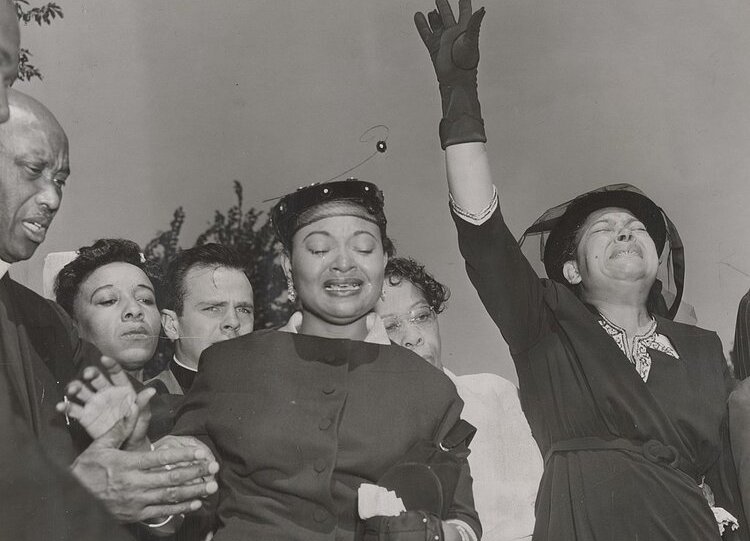A Letter to White America:
Make This the Last Summer of Our Discontent
EMMETT TILL WOULD HAVE BEEN 79 IF HE WERE ALIVE TODAY.
He might have had children and grandchildren to dote on and share wisdom with. Or, if not, he might have had a wider community of neighbors, colleagues, and friends—people to share jokes with; people to wave to on his daily walks.
He might have had a legacy he built with his own two hands—a business to hand down; a career to take pride in; a lifetime of reflections, ideas, and memories to put down on paper or tell a trusted ear in the quiet moments amidst the cacophony of life.
He might have been able to see his mother, Mamie Till Mobley, through her old age. To lay flowers on her grave and be the keeper of her memory.
Instead, Mamie was the keeper of his.
The Lynching of Emmett Till
Mamie Till Mobley, the mother of Emmett Till, chose to have an open-casket funeral for her 14-yeard-old son in order to force America to reckon with the brutality of his lynching by Roy Bryant and J. W. Milam, who were both White men.
Emmett Till never made it past 14.
His murderers, Roy Bryant and J. W. Milam, both White men from Money, Mississippi, made it to 63 and 61, respectively. Carolyn Bryant, the White woman whose false testimony was instrumental in the acquittal of Bryant and Milam, is still alive.
August 28, 2020, marks the 65th anniversary of the lynching of Emmett Till, a Black boy from Chicago who was spending the summer with family in Mississippi when he was killed. A Black boy who liked to chew bubble gum and who had, like all people do, dreams both realistic and fantastic about what the future might bring to him. A Black boy who lost his life due to the fragility of White toxic masculinity and the complicity of White womanhood.
August 28, 2020, also marks the 57th anniversary of the March on Washington for Jobs and Freedom. When the March’s organizers, A. Philip Randolph and Bayard Rustin, chose August 28 for that day of solidarity and speeches and remembrance, it wasn’t just because it felt like a fitting day for reflection on 1963’s “summer of our discontent.” The day wasn’t chosen just to remember the countless people, mostly Black, but some White as well, who had been intimidated, beaten, and killed by both state and civilian forces as they fought for racial justice and civil rights over the course of those summer months. It was also chosen to remember, and honor, Emmett Till, who was neither the first nor the last Black boy to lose his life at the hands of American White supremacy.
The summer of 1963 was a summer of discontent for Black Americans and their White American allies. Birmingham, Alabama, became the epicenter of civil disobedience. Throughout those fraught months, Americans young and old, Black and White, poor and wealthy joined together to protest the physical and structural violence accompanying the racial discrimination manifested in Jim Crow laws, police brutality, domestic terrorism, and economic disparity.
The label “summer of our discontent” arose from the resistant backlash of many White Americans to Black Americans’ demands for an end to their second-class citizenship status, demands that called for an acknowledgment of their humanity and a genuine embrace of their emancipation.
One hundred years earlier, the Emancipation Proclamation of 1863 presented the nation with an opportunity to claim freedom for all Americans, not only the descendants of enslaved Black people. A century later, the “summer of our discontent” presented the nation with the same opportunity.
However, neither moment resulted in America as a country coming to terms with its history to ensure a “more perfect union.”
Unity does not demand total agreement, but it does require a basic acceptance of the lives and thoughts of those desirous of the same goal. More than five decades later, America has neither achieved a “more perfect union” nor presented itself as desirous of the same goal—namely, the dismantling of White supremacy and the end of anti-Black racism.
The injustices that led to the Emancipation Proclamation of 1863 and the 1963 “summer of our discontent” persist in 2020. As a result, we are living through another summer of discontent—another summer of White supremacist violence; another summer of police brutality; another summer of Americans taking to the streets either to demand change or to retrench the same ideologies that have long prevented this country from realizing its dream of true freedom for all people who call it home.
During this summer of discontent, we have lost many more Black lives to the terror of White supremacy. We have lost George Floyd, 46. We have lost Tony McDade, 38. We have lost Rayshard Brooks, 27. We have lost David McAtee, 53.
Before we lost George Floyd, we lost Breonna Taylor, 26. Nearly six months after she was killed while sleeping in her Louisville, Kentucky, home, the officers who killed her have yet to be arrested or charged. From January 1, 2020, to this statement’s writing, 121 Black people have been shot and killed by police in America. That count doesn’t include people like George Floyd, who was killed with a knee on his neck, or people like Ahmaud Arbery, who was murdered by two White men in Georgia who were not arrested until video of the murder sparked a public outcry.
We have nearly lost Jacob Blake, 29, because a Black man with his back turned is no longer human in the eyes of a White supremacist system. Instead of seeing him as a person whose three children witnessed his attempted murder from his car, Kenosha authorities are fixating on the knife they found in the vehicle. Meanwhile, 17-year-old Kyle Rittenhouse, who is White, is depicted as a boy who cleaned up graffiti before killing two protestors in front of Kenosha police.
Rittenhouse was taken into custody, unharmed, half a day later. Blake, now paralyzed, lies handcuffed to his hospital bed, because even after being shot seven times, the White supremacist criminal legal system sees him as less than human and deserving of chains.
As we join people from across the United States in marking the 57th anniversary of the March on Washington through participation in the national “Get Your Knee Off Our Necks” Commitment March being organized by the National Action Network, we have a call to White America:
Make this the last summer of our discontent.
America cannot achieve its vision of a “more perfect union” until White Americans confront the toxicity of White supremacy and do the work of dismantling it wherever they stand, even—and especially—when that work is at its most difficult and harrowing.
“The most urgent, the most disgraceful, the most shameful, and the most tragic problem is silence,” intoned Rabbi Joachim Prinz, a survivor of Nazi Germany, in his speech immediately preceding Rev. Dr. Martin Luther King, Jr. at the 1963 March on Washington.
As a Jewish leader in Berlin in the 1930s, Rabbi Prinz knew well the tragic outcome that the silence of the privileged in the face of structural violence and racism can have.
“America must not become a nation of onlookers. America must not remain silent. Not merely Black America, but all of America,” Rabbi Prinz said. “It must speak up and act, from the President down to the humblest of us, and not for the sake of the Negro, not for the sake of the Black community, but for the sake of the image, the idea, and the aspiration of America itself.”
It is time for America, and White America in particular, to understand that racism is not a partisan issue. Attempted murder and murder by officers of the law and vengeful vigilantes should not continue to be partisan issues or political talking points used to bump up ratings.
Like in 1963, America is at a crossroads. The opportunity to confront our nation’s past and move toward a “more perfect union” stands before us.
This crossroads demands much of us. It demands a re-evaluation of our claims on morality, justice, law, liberty, order, and “the pursuit of happiness.” It requires us to grapple with, and answer, questions that may make us uncomfortable, questions like,
-
“Who’s happy when filled with fear and rage and hatred?”
-
“Who is benefiting from a life lost to violence rooted in White supremacy? How does White supremacy poison the souls of White folk [like Rittenhouse] while stealing the lives of Black folk?”
-
“What does liberty look like when Black people continue to be mentally and physically incarcerated because of hatred and dehumanization?”
-
“What integrity does the law hold when those sworn to uphold it are not accountable to it?”
It isn’t just Black Americans or other Americans of color who must grapple with these questions, but White Americans as well.
“We speak of human rights, but who will ever mention human obligations?” reflected Rabbi Abraham Joshua Heschel, who spent years of his life in dedication to the Civil Rights Movement. “Human rights are sacred, but I think human obligations are equally sacred.”
This summer of our discontent has shown us that it is indeed time for people of all races in America to take a stand. If you are not outraged by what you have witnessed this past year, when will you be?
We understand that some people will never understand. However, for White people in positions of power and privilege who wish to be a part of the solution and not the problem, it is not enough to be outraged about police brutality towards Black people in this country.
The fact that, 57 years after the March on Washington, we are still experiencing the pandemic of systemic anti-Blackness—while in the midst of the COVID-19 pandemic, no less—has shown us that symbolic action is not enough to dismantle our White supremacist system. History has reminded us time and again that White people can march with Black people in the streets, yet remain silent in boardrooms, classrooms, cubicles, and their own neighborhoods and homes.
What we are witnessing in this country is the result of systemic and institutionalized racism predicated on Black inferiority and invested in maintaining White superiority. Such a system will not be undone until those who benefit most from it speak out and act out against racist policies, actions, and procedures in their own spheres of influence.
For many, it is relatively easy to stand up when exposed to the realities that Black people face in relationship to police brutality—realities that mean Black people are three times more likely to be killed by police than White people in America.
But what about the Black families, the Black lives, and the Black dreams that have been cut down because of the racist policies, practices, and procedures that continue to undergird all of our institutions, from the halls of government to the gated communities of many a White suburb?
What about the fact that, if Emmett Till had not been brutally lynched in 1955, he would have had to face down innumerable health and economic disparities just to make it to old age?
Today in D.C., on the anniversary of the 1963 March and of Emmett Till’s death, White people may march and may donate and may pray. In doing so, they will be following models of White solidarity that stretch far beyond even the efforts of people like Rabbi Prinz and Rabbi Heschel during the Civil Rights Movement.
But to those White people who join Black people on the streets, we ask that you do not forget your passion for solidarity, your desire for justice, and your commitment to peace when you return to your homes and your places of privilege.
“Wake up, America! Wake up! For we cannot stop, and we will not and cannot be patient,” the late Congressman and Civil Rights leader John Lewis said in his historic speech to those gathered at the 1963 March.
More than fifty years later, we must ask: When will all of America wake up and recognize that our democracy is tainted with systemic racism?
The trauma that Black Americans face and continue to face is unrelenting. What we are witnessing is not a moment or a phase. What we are witnessing is a reckoning.
As we reflect on this past summer of our discontent, we are witnessing the actions of a nation whose foundation has been exposed and laid bare to the world. As we confront White supremacy in the streets and in the boardrooms, in the classrooms and in our own homes, let us be committed to transforming this country into a nation that no longer will continue to exploit the marginalized and oppressed for the sake of maintaining a so-called democracy built on blood spilled in service to White supremacy.
We hope that you will join us in working toward a more equitable and just world.
For your consideration:
- Remarks by John Lewis at the 1963 March on Washington
- Remarks by Rabbi Joachim Prinz at the 1963 March on Washington
- The Black-Jewish Alliance and the Civil Rights Movement
- Recording of Aug 24, 2020 event: The Tenacity of Racism and Its Challenge to Religious Faith
Say Their Names
121 Black people have been shot and killed by police in the United States from January 1, 2020, to this statement’s writing on August 28, 2020. This list does not include Black people who have been killed by the police via other means. (Source: Washington Post)
Trayford Pellerin, 31, Lafayette, La
Adrian Jason Roberts, 37, Cumberland County, NC
Anthony McClain, 32, Pasadena, Ca
Jonathan Jefferson, 34, Bossier City, La
Julian Edward Roosevelt Thompson, 60, Sylvania, Ga
Salaythis Melvin, 22, Orlando, Fla
Darrien Walker, 28, Detroit, MI
David Earl Brooks, 45, Roxboro, NC
Southern Jeremy, 22, Sacramento, Ca
Vincent Harris, 51, Baton Rouge, La
Darius Washington, 24, Chicago Heights, IL
Hakim Littleton, 20, Detroit, MI
Joseph W. Denton, 35, Milwaukee, WI
Kevin Ruffin, 32, Sheboygan, WI
Ky Johnson, 31, Kansas City, Mo
Rasheed M. Moorman, 26, Roanoke, Va
Chazz Hailey, 22, Sherman, Tx
Unidentified person, 43, Giddings, Tx
Terron Jammal Boone, 31, Rosamond, Ca
Caine Van Pelt, 23, Crown Point, Ind
Rayshard Brooks, 27, Atlanta, Ga
Michael Thomas, 62, Lancaster, Ca
Lewis Ruffin, 38, Orlando, Fla
Kamal Flowers, 24, New Rochelle, NY
Tyquarn Graves, 33, Brooklyn, NY
David McAtee, 53, Louisville, Ky
Derrick Thompson, 46, Fountain, Fla
Jarvis Sullivan, 44, Yulee, Fla
Momodou Lamin Sisay, 39, Snellville, Ga
Ruben Smith, 35, North Little Rock, Ark
Modesto Reyes, 35, Jefferson Parish, La
Tony McDade, 38, Tallahassee, Fla
Dion Johnson, 28, Phoenix, Az
Maurice S. Gordon, 23, Bass River, NJ
Willie Lee Quarles, 60, Greenwood, SC
Toby Wiggins, 45, Atmore, Ala
Randy Roszell Lewis, 38, Houston, Tx
Robert Johnson, 29, Essex, Md
Rayshard Scales, 30, Houston, Tx
David Tylek Atkinson, 24, Raleigh, NC
Yassin Mohamed, 47, Claxton, Ga
Finan H. Berhe, 30, Silver Spring, Md
Adrian Medearis, 48, Houston, Tx
McHale Rose, 19, Indianapolis, Ind
Dreasjon Reed, 21, Indianapolis, Ind
Jad’Sean Iandie Hodge, 21, St. Cloud, Fla
Qavon Webbb, 23, Webster Groves, Mt
Demontre Bruner, 21, Muskogee, Okla
Said Joquin, 26, Lakewood, Wa
Brent Martin, 32, Little Rock, Ark
Shaun Lee Fuhr, 24, Seattle, Wa
William Debose, 21, Denver, CO
Malcolm Xavier Ray Williams, 27, Jeffersonville, Ind
Jonas Joseph, 26, Tampa, Fla
Joshua Johnson, 35, Houston, Tx
Elmer L. Mack, 40, Florence, SC
Chase Rosa, 24, Las Vegas, Nv
Virgil Thrope, 28, Colorado Springs, CO
Steven Taylor, 33, San Leandro, Ca
Derick L. Powe, Daphne, Ala
Jasman Washington, 31, Lubbock, Tx
Goldie Bellinger, 39, Augusta, Ga
Jonathan Lee Adams, 31, Pottstown, Penn
Zyon Romeir Wyche, 19, Colonial Heights, Va
Joshua Dariandre Ruffin, 17, Columbia, SC
Dewayne Curtis Lafond, 45, Refugio, Tx
Idris Abdus-Salaam, 33, Knoxville, Tenn
Nathan R. Hodge, 66, Ouachita Parish, La
Etonne Tanzymore, 38, Baltimore, Md
Tyrell Fincher, 26, Newburgh, NY
Alvin Lamont Baum, 23, Virginia Beach, Va
Kamall Koby Edwards, 18, Cuthbert, Ga
Mycael Johnson, 31, Tallahassee, Fla
Lebarron Ballard, 28, Abilene, Tx
Harold Spencer, 61, Iota, La
William Simpkins, 39, Atlanta, Ga
Darwin Foy, 35, Webster City, IA
Donnie Sanders, 47, Kansas City, Mo
Breonna Taylor, 26, Louisville, Ky
Barry Gedeus, 27, For Lauderdale, Fa
Tyler M. Jones, 24, Fairfield, Ohio
Elijah Jamaal Brewer, 25, Pittsburgh, Penns
Anthony Taylor, 49, Milwaukee, WI
Justin Lee Stackhouse, 30, Bradenton, Fla
Kenneth Sashington, 38, Tuscumbia, Ala
Joseph Jewell, 17, Columbus, Ohio
Kevin Adolphe, 23, Orlando, Fla
Bobby Gibbs, 40, Forrest City, Ark
Jeremy Grayson, 31, Chicago, IL
Dominique Antwon Anderson, 26, Home Garden, Ca
Darius Tarver, 23, Denton, Tx
Marc Dominic Neal, 56, Millcreek, Utah
Alvin Cole, 17, Wauwatosa, WI
Ronnell Mouzon, 41, Fort Meyers, Fla
Leonard Parker, 53, Gulfport, MS
Keith Dutree Collins, 52, Raleigh, NC
Abdirahman Salad, 15, Columbus, Ohio
Jaquyn Oneill Light, 20, Graham, NC
Aaron T. Booker, 22, Aiken, SC
William Howard Green, 43, Temple Hills, Md
Joshua James Brown, 34, Columbus, Ohio
D’ovion Semaj Perkins, 19, Aurora, CO
Michael Rivera, 32, Bloomingdale, NJ
Andrew Smyrna, 32, Atlanta, Ga
Marquis Golden, 29, St. Petersburg, Fla
Deandre Lee Seaborough-Patterson, 22, Savannah, Ga
Reginald Leon Boston, 20, Jacksonville, Fla
Samuel David Mallard, 19, Powder Springs, Ga
Mubarak Soulemane, 19, West Haven, Conn
Albert Lee Hughes, 47, Lawrenceville, Ga
Renard Antonio Daniels, 55, Cocoa, Fla
Kennan McCain, 29, Gary, Ind
Ryan O. Simms, 49, Miami Beach, Fla
Henry Isaac Jones, 47, Bainbridge, Ga
Claude Fain, 47, Philadelphia, Penn
Earl Facey, 37, New York, NY
Miciah Lee, 18, Sparks, Nv
Brandon D. Roberts, 27, Milford, Del
Kwamae Jones, 17, Jacksonville, Fa
Tyree Davis, 25, Chicago, IL
Jamari Daiwon Tarver, 26, Las Vegas, Nv
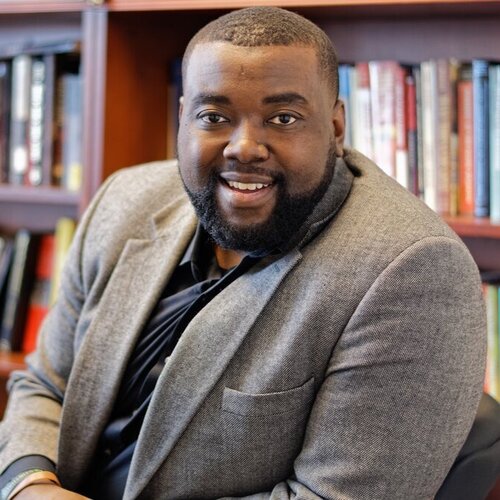
Charles L. Chavis, Jr., PhD
Founding Director of the John Mitchell, Jr. Program
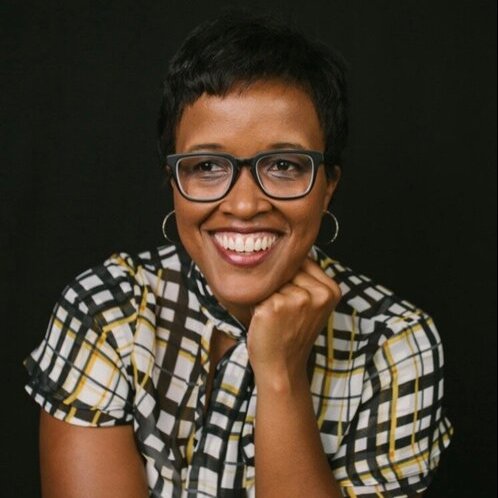
Ajanet Rountree
Program Coordinator at the Mitchell Program
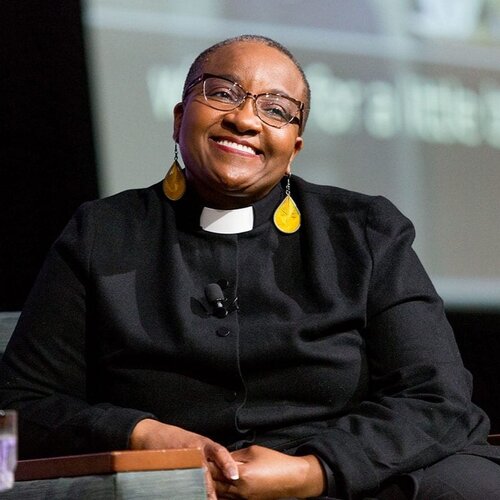
The Rev. Nontombi Naomi Tutu
Associate Rector, All Saints, Beverly Hills; Advisory Board Member at the Mitchell Program
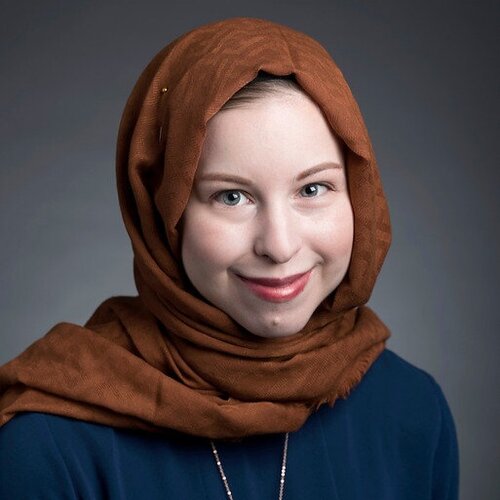
Audrey Williams
Director of Communications at the Mitchell Program
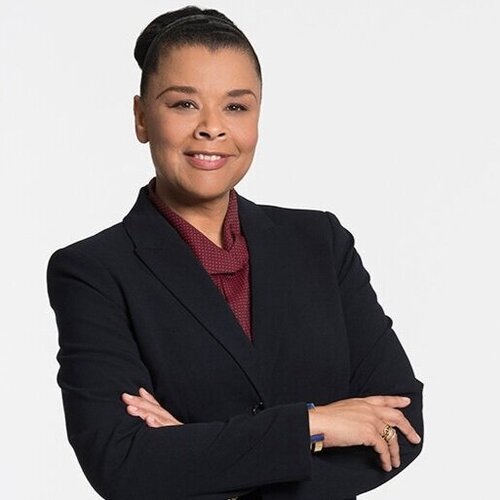
Kimberly Wilson
Great-great-niece of John Mitchell, Jr.; Advisory Board Member at the Mitchell Program`


